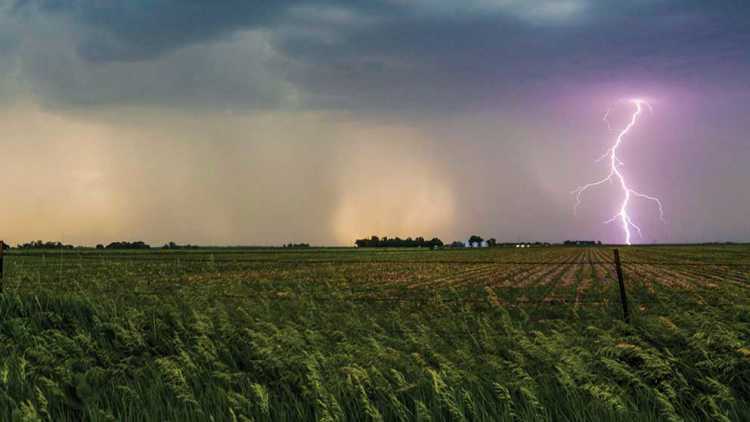How to plan for worst-case scenarios on the farm

No one likes to think about it, but everyone knows it can happen. A catastrophic fire, a devastating flood, a runaway disease outbreak or the death of a family member. All can throw a farm enterprise into a state of crisis. Who’ll run the farm? How will short-term financial obligations be met? How can debt be serviced when revenue slows or stops?
Disaster planning: how to be ready for the day you hope never comes.
Build financial resiliency. Paul Hammerton, farm management consultant with MNP in Swift Current, Sask., believes that when disaster strikes, there’s no substitute for money in the bank or assets that can be readily sold.
“The best protection against disaster is wealth,” Hammerton says. “The better financial condition you’re in when a disaster occurs, the better you’ll be able to get through it.”
Disaster-check your farm business plan. Terry Betker, president of Backswath Management in Brandon, Man., urges producers to make disaster planning part of their overall approach to management. “Identify all the potential risks that could impact your farm,” he says. “Score these risks for probability and impact. Give those of higher probability or greater potential impact your careful attention.” He recommends the risk assessment exercise available from the Farm Management Canada website.
Keep your lender close. If disaster strikes, your lender will want to help. “We advise our clients to maintain that relationship in a proactive manner, by keeping your banker informed of what you’re up to,” MNP’s Hammerton says. “We’ve even seen clients in a relatively weak financial position maintain the confidence of their banker in this way.”
Work through the scenarios, follow the money. What if the worst happens, and farm cash flow plummets or even stops? What steps, in which order, will you take to maintain operations and service any debt? “I suggest farmers explore a theoretical debt restructuring exercise,” Betker says. “The first step might be to tap available working capital. But take it a few steps further and consider whether you’ll sell assets, and which assets you’ll sell.��” This decision framework goes in the disaster section of your business plan and can be referred to if needed.
Insure appropriately. As Steve Johnston, with The Co-operators in Guelph, Ont., explains, insurance is available to cover many of the worst-case scenarios a farm business can face: damage to or destruction of dwellings, machinery and structures; business interruption, disability or death. By working through risk scenarios with a qualified advisor, a family can get the business and personal coverage that’s right for them. “Everyone’s unique, with a different risk appetite,” Johnston says. “Whether the farm is a family operation currently planning for the next generation or owned by a corporation, many factors determine what protection might be needed. We’re in business to help manage risk.”
Keep your management tuned. In Hammerton’s view, one of the most effective ways to mitigate disaster risk is through good farm management. “Producers with realistic production targets, a sound crop rotation, sound management of animals – these strong managers mitigate risk on their farms,” he says. “If finance is the framework for risk mitigation, production and management hang on that framework.”
Directly address the risks you can. Even when cash reserves or working capital are strong, or insurance is in place, the job of risk mitigation isn’t done. As Johnston advises, do what you can to prevent a disaster from occurring in the first place. “Continue to remain vigilant,” he says. “Ensure your electrical systems are inspected, ventilation is adequate, and monitor seasonal considerations like barn temperature and humidity.”
When Backswath Management’s Terry Betker speaks at farm management conferences, he asks farmers this question: “Who here has a legal will?”
“Most hands go up, which is good,” Betker says. “I’ll then ask, ‘Does your will reflect your current wishes and family situation?’ Lots of hands go down. There’s thinking you’re ready, and there’s knowing you’re ready. I advise clients to address disaster planning each year, or at least every two or three years. Understand the risks you face and know how you’ll manage those risks.”
From an AgriSuccess article by Kieran Brett.

Discussing prenuptial agreements and other legal formalities might cause some to squirm, but advisers say they’re a good way to help protect the longevity of a farm business.
